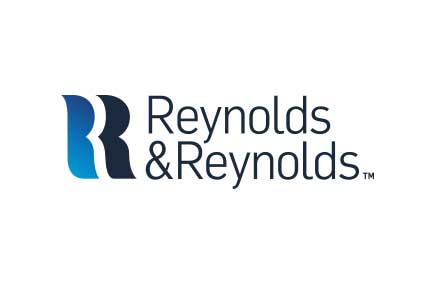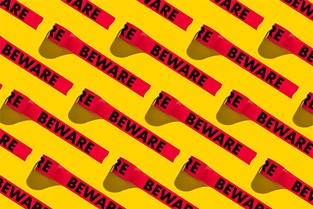How Evaluating Dealership Operations Can Make All the Difference

Article Highlights:
- Find opportunities to maintain cash flow and keep employees.
- How to optimize your service drive and parts department during this time.
In this episode of Reynolds’ new video podcast, Connected, Gary Reinhardt, senior product planning manager, talks with us about parts of the dealership to evaluate for areas of opportunity that could help you improve your cash flow position. Hear his recommendations for sustaining your business.
Greg Uland: Hello, I’m Greg Uland, marketing director at Reynolds and Reynolds, and this is Connected, the podcast with best practices and ideas to help navigate what is happening in the automotive retail industry and the world today. As the COVID-19 virus continues to change our world and how we live and work daily, this podcast discusses ways to continue operating in this unprecedented social environment. On today’s episode we have with us, Gary Reinhardt, product manager at Reynolds and Reynolds. Gary, thanks so much for joining.
Gary Reinhardt: Thanks for having me.
GU: Gary, today I’m hoping to talk about some places that dealerships can either reduce expenses or possibly find some money that might be a little bit of low-hanging fruit. Some easy places to look, common places to look. Before we get there, though, I’d like to get your perspective on keeping employees on board. Is that something, in today’s environment, that’s possible?
GR: Well, it’s certainly possible. For most dealers. It may come down to simply evaluating who the core people are they need, and do they have people that they can use in other areas? But primarily it’s going to come down to cash flow and how the business is doing in the depressed economy.
GU: Any any tips at all for evaluating that?
GR: Well, I would start by looking at your receivables, for example. You know, what do your contracts in transit look like? Are there ways that we can get money that’s owed to the dealership in as quickly as possible so that we have that cash flow? It could be contracts in transit, it could be maybe I’m going to floor some vehicles that I didn’t choose to floor when I took them into inventory to get some cash flow that way. It could be in receivables in more aggressively trying to track down businesses or customers who owe the dealership money. I’m sure that a lot of this is being done already, but looking at it in the context of the degree that we can improve our cash flow situation, it gives us options to maybe keep some people that we might normally have to furlough or let go, for the short term.
GU: Another thing that I’ve seen out there is looking at wholesale policy and things like that. I don’t know if you’ve seen anything or heard from dealers as far as what they’re doing when it comes to options for wholesaling vehicles?
GR: There are a couple of options with wholesaling. First of all, again, if the goal is to get as much money in, maybe there’s some vehicles that I normally would keep on the lot that I could go ahead and wholesale and get that cash flow in. On the other side of it, if cash flow is pretty solid right now, we’re just not bringing in a lot of new business, maybe service and parts are doing okay, but we’re not selling a lot of vehicles. We could actually decide to keep vehicles on the lot in anticipation of the end of the quarantine. So in that scenario, it’s likely that there were a lot of people out there that were maybe thinking about buying a new car, upgrading their vehicle before all of this happened. When things return to normal, we all know it won’t happen overnight. It’s going to take a while for people to replenish their bank accounts and whatever else, and they may be a greater market for vehicles that we might normally wholesale simply because they’re better than the vehicle that the person has. So instead of buying a nice new car, which is what they wanted to do, what they need is now a used vehicle. So some of those wholesale vehicles, there might be a greater market for those when this is over.
GU: Yeah, that makes sense. What about, Gary, anything in the back-end of the store too? Any places to look there that might be worth some time?
GR: Well, from a service standpoint, certainly as work comes in, anything that I can do to optimize my people so that I can get as much work done. So maybe with a little bit finer tooth comb, looking at everyone who comes in or everyone who schedules an appointment to make sure that we are truly operating at the highest capacity possible, would be one way to get more money into the dealership. You know, over on the parts side, there’s a lot of parts companies out there, body shops, repair facilities, who might have a greater demand for parts. And whereas that may not have been a focus, it could be an opportunity where you would reach out and maybe expand your wholesale parts business. Maybe someone who was a used car salesman, let’s say, in the past before things got slow. Maybe they would be fine with driving a parts truck, if we expand that business. So you just have to think out of the box and look at your area and your market and your personal situation to find out, what can I do? What do I need to do to survive in the long haul and to be in the best position possible when things do start getting back to normal?
GU: Well, Gary, I definitely appreciate you taking a couple minutes out of your day to chat. While I have you and while we have the audience, too, is there anything else that you would want to touch on or anything you want to say?
GR: You know, there are opportunities throughout the dealership to look at, both receivables and to some degree, payables. We really need to just tighten your belt and, let’s say on the receivables, we talked about that in the beginning of the conversation. Maybe as a policy, you’ve never charged any finance charges for the customers that slow pay. And while you want to be a nice person in these difficult times and give people the benefit of whatever you can give them to help them get through as well, the primary responsibility is always the dealership. And things can be done to add focus on areas where there’s an opportunity. That receivable balance is money that is owed to you. And there’s nothing wrong with saying, “Hey, we need to get that money in so we can survive.” So, I think everyone just needs to figure out what’s going to work best for them. Some customers it could even be a parts core inventory. We need everything returned to the manufacturer, because that’s going to be a credit that you can use against the parts you buy from the manufacturer. While all of these things are fairly common, sometimes it helps for someone to just go through a list of things and it might remind you that, hey, I haven’t checked this or that. All of it, you just really need to look holistically at the dealership to make sure that you’re doing everything you can do to keep your business where it needs to be.
GU: Well, Gary, I definitely appreciate you taking time. Thanks so much for coming on.
GR: You’re welcome. Thank you for having me.
GU: Definitely. This has been Connected. Stay safe, and we’ll see you on the next episode.
Continue to tune in often to see new episodes on best practices and tips for navigating the automotive industry during this unprecedented time.
Related Articles:
The days of “just browsing” are behind us. Today’s buyers show up with screenshots, side-by-side comparisons, and monthly payments already calculated. They’re ready to sign…
At its core, the desking process should be simple. But the reality is, if you ask ten dealerships how they desk deals, you’ll get ten…
It’s funny, the way your world opens up after you visit the eye doctor for the first time and learn you need glasses. I’ve been…
In response to a social media trend, there’s a chance someone asked you “How often do you think about the Roman Empire?” As a history…



















